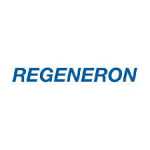Author Interviews, Dermatology, Diabetes / 22.02.2022
Leg Wounds: Topical Timolol Accelerated Healing Times in Elderly Patients
MedicalResearch.com Interview with:
Chih-Shan Jason Chen, MD, PhD
Director, Dermatologic and Mohs Micrographic Surgery Unit
Memorial Sloan Kettering Skin Cancer Center at Hauppauge
Attending Mohs Surgeon, Dermatology Service
Memorial Sloan Kettering Cancer Center
Chief, Dermatologic Surgery Northport VA Medical Center
Associate Professor of Clinical Dermatology
Renaissance School of Medicine at Stony Brook University
MedicalResearch.com: What is the background for this study?
Response: Managing a surgical wound on the lower leg can be a challenge. Often, higher wound tension, atrophic skin, edema, and compromised circulation result in higher risks of wound dehiscence and infection, and significantly limit the capacity of wound closure post-surgically. Therefore, healing by secondary intention is a practical option for many lower leg Mohs defects. However, a secondary intention wound on the lower leg is expected to take a longer time to heal. Certain factors such as older age and health conditions of the host may adversely affect healing time.
Timolol is a nonselective beta-adrenergic receptor antagonist that has FDA approval for the treatment of glaucoma. In addition to this FDA-approved indication, topical timolol has several off-label uses in dermatology, such as for the treatment of infantile hemangiomas, venous stasis ulcers, and refractory wounds. Although timolol solution has been used in chronic wounds, knowledges of the efficacy and utility of timolol in an acute post-surgical wound setting is lacking.
(more…)


